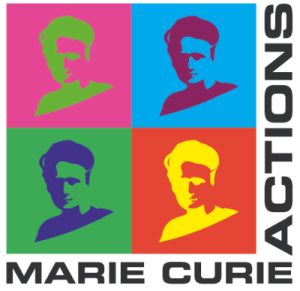Two iCRAG researchers awarded MSCA Individual Fellowships
iCRAG is delighted to announce that two of the Centre’s researchers have been awarded Marie Skłodowska-Curie Action (MSCA) Individual Fellowships by the European Commission

Dr Audrey Morley (left) and Dr Weimu Xu (right)
Dr Audrey Morley, iCRAG Investigator and Lecturer the School of Geography and Archaeology in NUI Galway, has been awarded funding of €94,686 under a Marie Sklodowska-Curie Individual Fellowship for her project ARCTICO. Audrey will be hosted for 13 months by the MARUM - Centre for Marine Environmental Sciences, Bremen University, and will leave for a 3 months secondment to the Alfred Wegener Institute, Hemholtz Centre for Polar and Marine Research (AWI) in Bremerhaven.
Entitled “ARCTICO: Uncovering the Magnitude of Arctic Climate Change”, Audrey’s research focusses on a key challenge in climate change science: the provision of informed constraints on the magnitude of future climate change. Uncertainties associated with such predictions remain large due to the shortness of our observational records (at best 150 years) and the absence of large climate shifts therein to serve as an analogue for future change. This is especially problematic when estimating Arctic climate change because the response in the Arctic is amplified relative to the global mean, making the Arctic the most sensitive and vulnerable environment with regards to global warming. Efforts to assess the magnitude of past (e.g. pre-industrial) climate changes using climate proxies are thus crucial to further our understanding of how the Arctic system will respond to continued global warming.
Audrey’s programme of work seeks to constrain the magnitude of Arctic amplification by quantifying the influence of the carbonate ion concentration of sea water on the temperature signal recorded in the Arctic planktonic foraminifera Neogloboquadrina pachyderma sinistral (NPS). Using NPS shells collected from stratified plankton samples (Labrador Sea), Audrey will combine established and new analytical techniques in trace element and isotope geochemistry to derive and isolate carbonate system parameters from the climate signature recorded in NPS.
This approach is innovative and interdisciplinary as it takes advantage of cutting-edge knowledge in proxy development without compromising on the benefit of a seasonally and spatially constraint dataset. This will provide a holistic understanding of how changing hydrological and other environmental conditions impact not only NPS lifecycle but also the geochemical signal recorded in their shell. Given the uncertainties associated with available paleoceanographic tools this will provide a major advancement in the field of paleoceanography and climate change science.
Dr Weimu Xu, iCRAG postdoctoral researcher based in Geology and Botany departments at the School of Natural Sciences, Trinity College Dublin since Oct 2018, has been awarded funding of €294,886 for a duration of 3 years under the Marie Skłodowska Curie Individual Fellowship scheme – European Fellowship, Career Restart Panel, by the European Commission. The fellowship will be hosted by the Department of Botany, School of Natural Sciences at Trinity College Dublin.
Entitled PALEOcene greenhouse climate and the effect of basalt weathering on CARBON sequestration (PALEOCARBON), Weimu’s fellowship project concerns a very timely scientific question relevant to climate change and greenhouse conditions with important implications for understanding of Earth system responses and climate change mitigation. The skills and competences to be gained throughout the fellowship will greatly contribute to place Weimu at the forefront of specialists in past and present climate change and plant mediation of Earth system feedback mechanisms.
The 2015 Paris Climate Agreement brought nations together to mitigate anthropogenic climate change, with the aim to keep global temperature rise below 2°C above pre-industrial levels. Artificially enhanced weathering of basalt, driven by intensified geochemical and biological processes that naturally promote the absorption of CO2, is considered as a potentially significant negative emissions technology. However, the impact of climate change and elevated greenhouse conditions on the rate and processes of basalt weathering and the role of plants in mediating this process are unconstrained. Weimu’s Fellowship will address this uncertainty by a multidisciplinary study on silicate weathering of basalts during the Paleocene climatic greenhouse world, using state-of-the-art botanical and geochemical proxies, tools and methods in the PALEOCARBON project.
The project will focus on three main objectives:
(1) Quantifying elevated Paleocene pCO2, temperature and precipitation levels using fossil leaves;
(2) Constraining processes & intensity of silicate weathering and carbon drawdown potential in Paleocene basalts;
(3) Quantifying elemental uptake of plants grown in high pCO2 laboratory conditions, to constrain the role of plant in mediating weathering processes.
Prior to moving to Ireland, Weimu obtained her DPhil degree from the University of Oxford, where she has generated high-impact research outcome in Earth system responses in the ocean and on land to super-greenhouse climate (e.g. the Oceanic Anoxic Events) during the Early Jurassic. Weimu has also gained cross-sectoral experience through a 1-year NERC (UK Natural Environmental Research Council) Knowledge Exchange Fellowship scheme to work at the UK Government Department for Business, Energy and Industrial Strategy to inform policy makers with up-to-date scientific evidence in the area of energy and climate change.
As part of PALEOCARBON, Weimu will work with and bring together Irish and international world-experts in the development and application of botany-based climatic and atmospheric proxies and basalt (silicate) weathering processes. Collaborators include iCRAG Principal Investigator Prof. Jennifer McElwain, in Trinity College Dublin and former iCRAG Deputy Director Prof. Balz Kamber, who is now based at the Queensland University of Technology.




